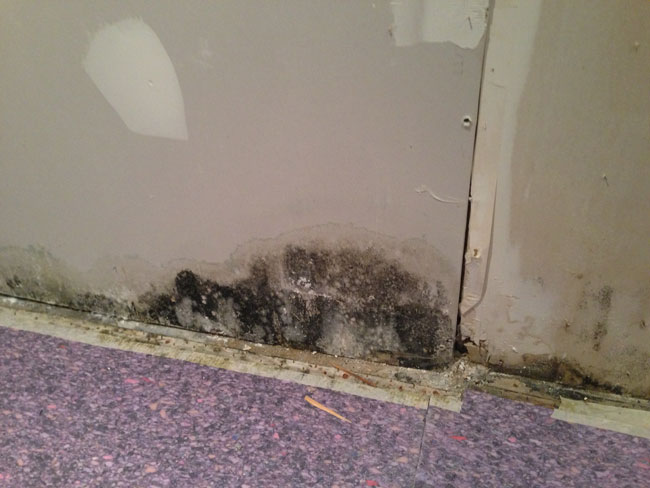Are you wondering about mold growth, mildew, or dampness in your basement? We get a lot of questions from clients about mold, so we’ve put together the most frequently asked questions.
What causes mold to develop?
The growth of mold entails three basic requirements:
- Nutrients can be obtained from organic materials such as wood, paper or fabrics
- Oxygen
- Favourable temperatures
- Moisture
Many basements in the GTA have moist, humid conditions, especially in the spring and summer months. Some mold spores can survive under normal temperatures, while others thrive below 40F or above 100F. This range is best suitable for the growth of mold. Anything below will make the mold dormant. Above this temperature, the mold and mold spores are more likely to be killed.
How does mold get into a Kitchener-Waterloo home?
If you have a basement leak, water will enter your home. This water will dampen materials, like drywall, wallpaper, carpet, baseboards, or belongings. From there, mold can grow on these objects due to the hospitable conditions mentioned above.
Are there harmful and non-harmful molds?
Most of the molds are not harmful, whereas some may affect only those with a weak immune system. For most people, the symptoms will be similar to asthma or a bad cold, with coughing, sneezing, stuffy nose, and so on. Some rare forms of mold produce “mycotoxins,” capable of causing illness in people and animals. Obviously, toxic mold is a priority to address, but any form of mold growth should be remediated with proper safety procedures ASAP.
Does mold affect everyone in the same way?
No. It largely affects those with a compromised immune system making them susceptible to allergies caused by molds. Even the slightest amount can have an adverse effect on them, whereas other individuals may feel nothing. This difference in effect on individuals has been a barrier to determining on the safest exposure limit.
Is it possible to completely eliminate mold from the inside of a home or office building?
This mostly depends on what we mean when we say “completely”. The best way to keep a building mold-free is through effective air filtration but this is only possible for exceptional cases such as operating rooms in hospitals. Since mold spores in everyone in the air outside, it is impossible to stop them from getting inside. However, moisture control can significantly control the growth of mold inside the buildings. In the case of basement mold, it can almost certainly be prevented from growing with proper basement waterproofing. But if you leave a piece of bread to rot in the basement, it will still get moldy!
Should I use bleach to get rid of mold?
No. Bleach can successfully kill mold, but it does not remove it from there. Since dead mold can cause the same allergic reactions, there is no point in killing or decolourizing it. Your best option is to call a mold remediation service to get rid of mold safely and permanently. Basement waterproofing may also be necessary.
Do you have any more questions? Contact us and we’d be happy to answer. If you have a basement mold problem, The Crack Doctor can help. We have dampness, mold, and mildew solutions and offer Kitchener mold remediation services.
With these tips, you will be better prepared to take on a foundation waterproofing project. If you have any questions or require a free foundation consultation on your home, contact The Crack Doctor today!


